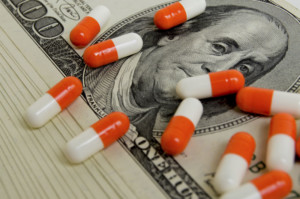 This June, federal officials announced the largest coordinated criminal Medicare fraud action and the first large-scale effort focused on Medicare Part D fraud in the history of the U.S. Justice Department. The Medicare Fraud Strike Force levelled charges against 243 individuals across the country accused of falsely billing $712 million to Medicare in a number of separate schemes. Those charged with fraud under the False Claims Act included 46 doctors, nurses and other licensed medical professionals.
This June, federal officials announced the largest coordinated criminal Medicare fraud action and the first large-scale effort focused on Medicare Part D fraud in the history of the U.S. Justice Department. The Medicare Fraud Strike Force levelled charges against 243 individuals across the country accused of falsely billing $712 million to Medicare in a number of separate schemes. Those charged with fraud under the False Claims Act included 46 doctors, nurses and other licensed medical professionals.
Read Moreabout Historic Number of Medicare Fraud Arrests Made in June
 As front-line professionals responsible for dispensing medications to Medicaid beneficiaries, pharmacists are particularly well positioned to discover and report
As front-line professionals responsible for dispensing medications to Medicaid beneficiaries, pharmacists are particularly well positioned to discover and report  On November 4, 2013, after nearly six years of litigation, Johnson & Johnson, the self-proclaimed “family company,” agreed to pay $149 million to the federal government, the states of California, Kentucky, Indiana, and Massachusetts, and the Commonwealth of Virginia, to settle Medicaid fraud claims under the False Claims Act. (
On November 4, 2013, after nearly six years of litigation, Johnson & Johnson, the self-proclaimed “family company,” agreed to pay $149 million to the federal government, the states of California, Kentucky, Indiana, and Massachusetts, and the Commonwealth of Virginia, to settle Medicaid fraud claims under the False Claims Act. (